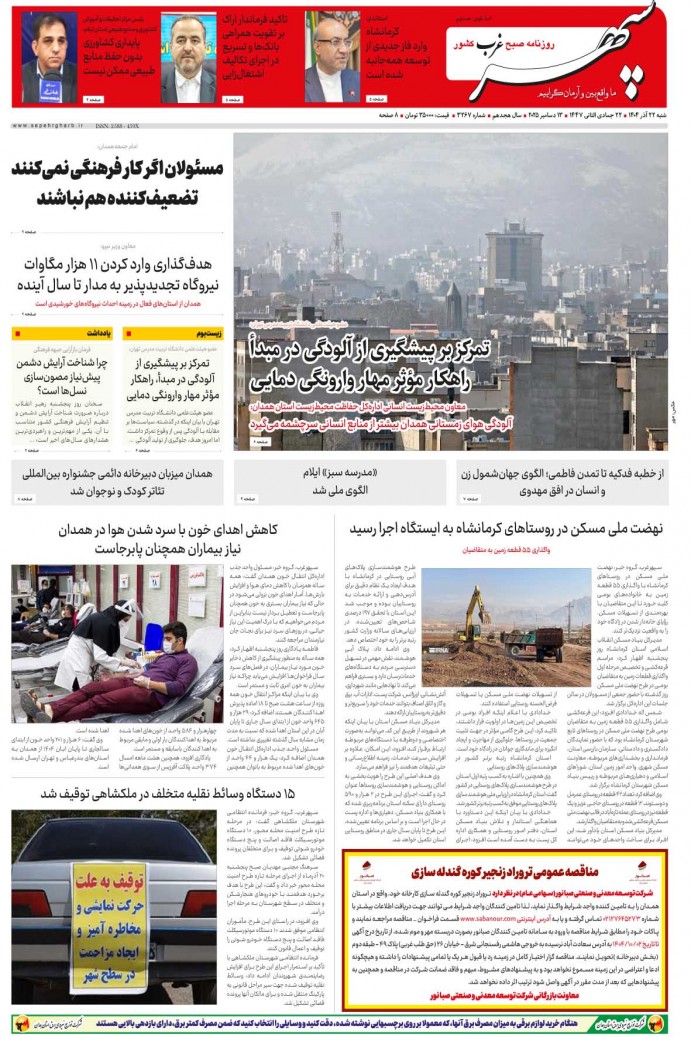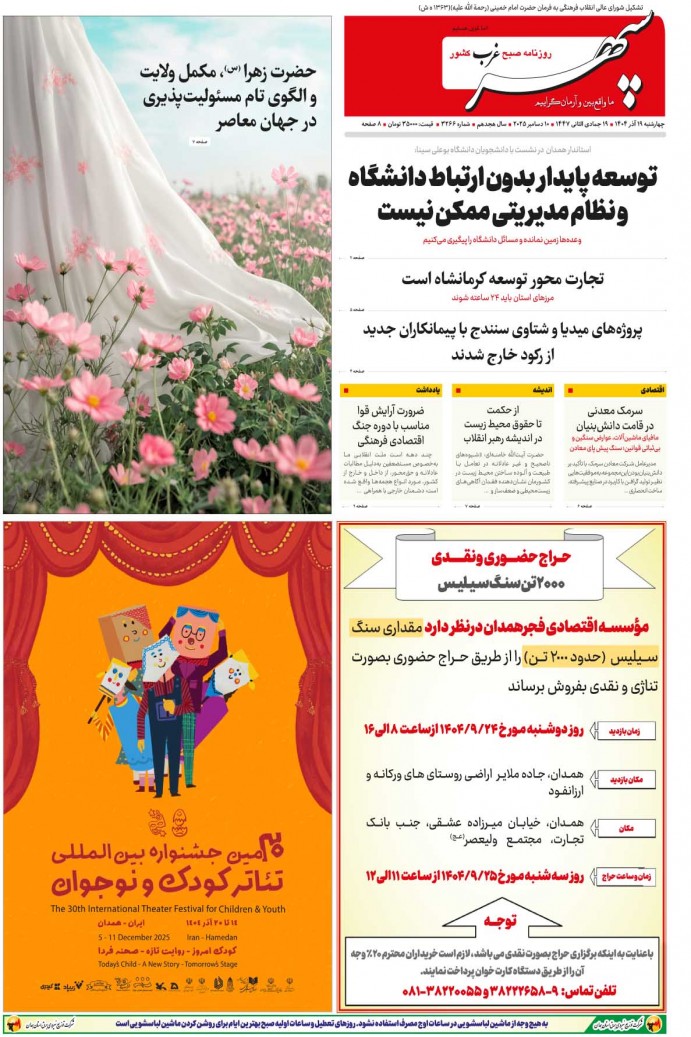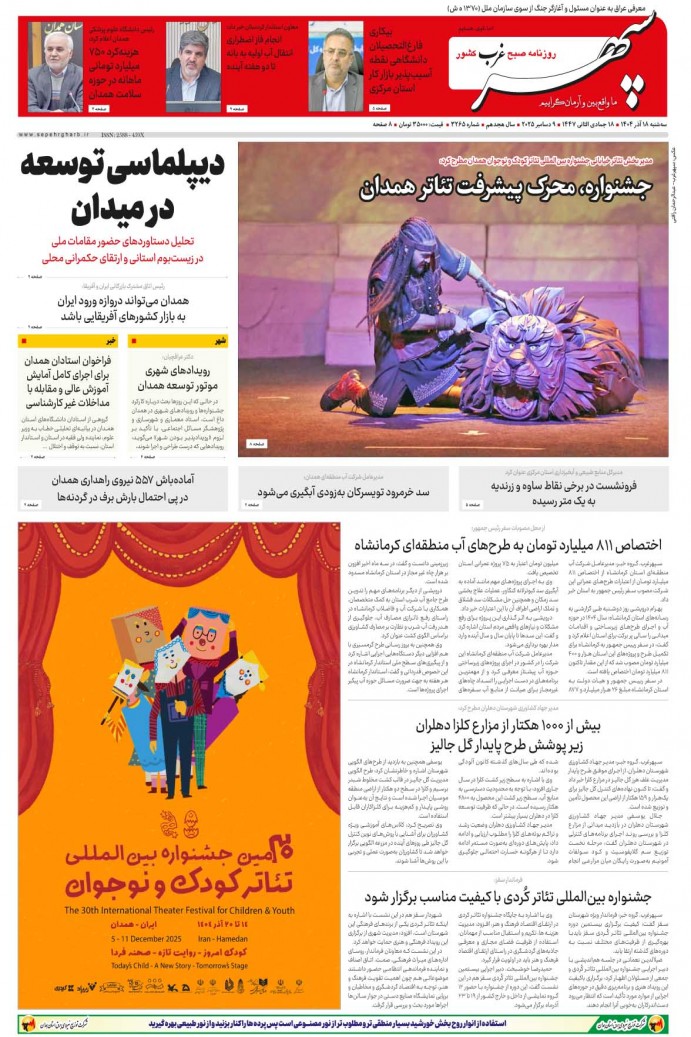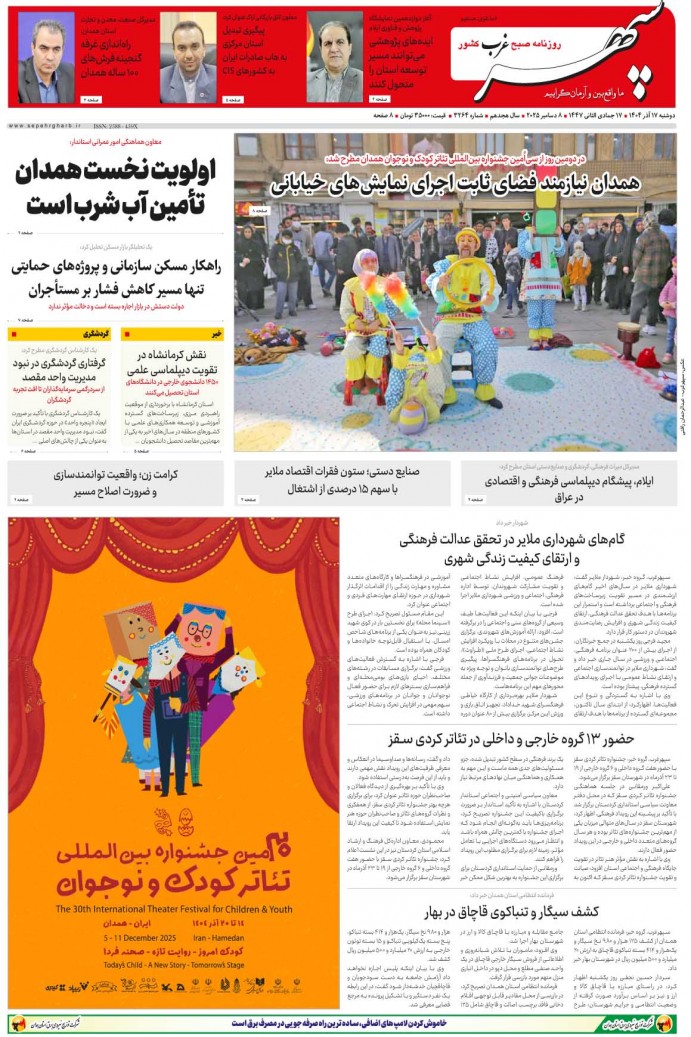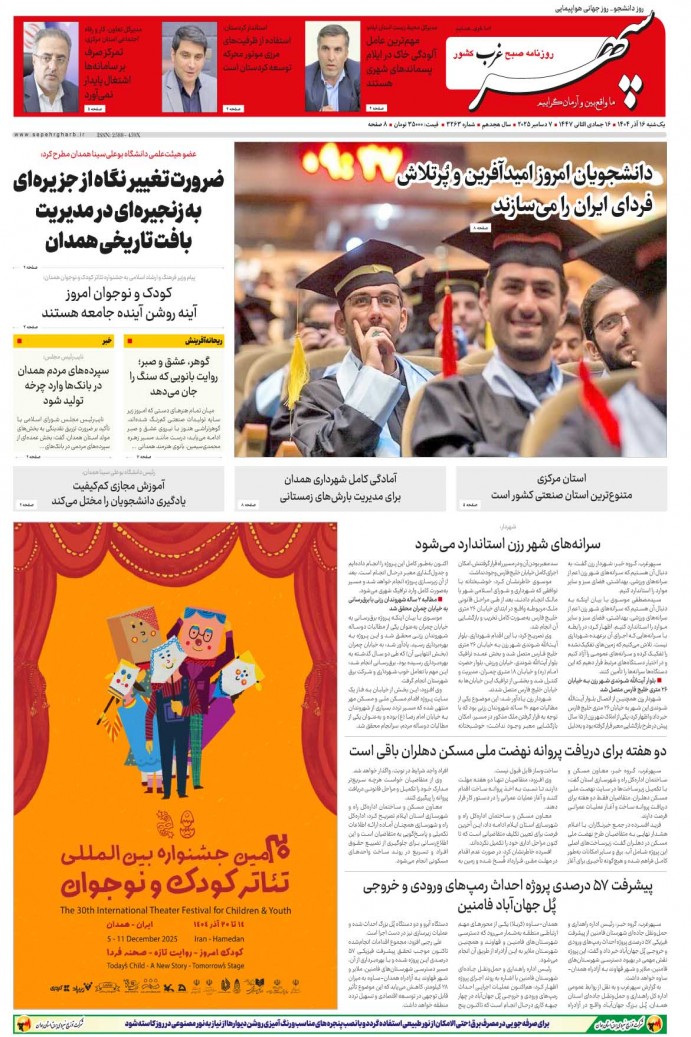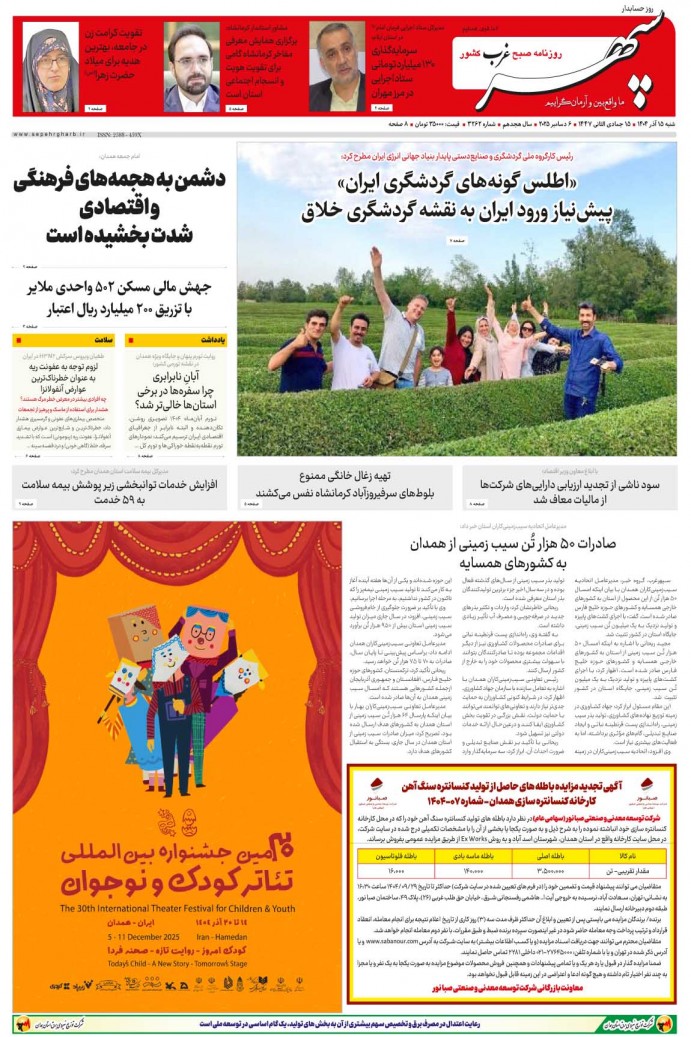

آخرین خبر ها

بازدید فعالان چاپ و نشر تاجیکستان از وزارت فرهنگ

جشنواره تئاتر کودک با رویکرد خانوادهمحوری برگزار شد

دریافت 2100 نسخه کتاب از سازمان اسناد و کتابخانه ملی

برخورد شهرداری همدان با ساختوساز غیر مجاز در باغات شهر

اطلس سرمایهگذاری همدان تدوین شد

حل مسئله مسکن دهکهای پایین، نیازمند اقدام جهادی









